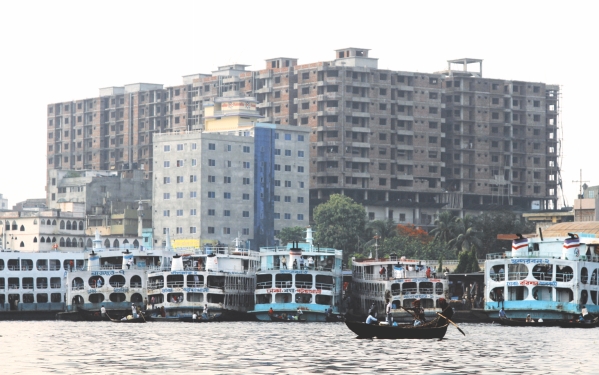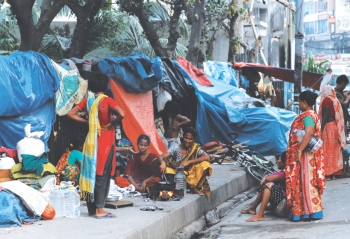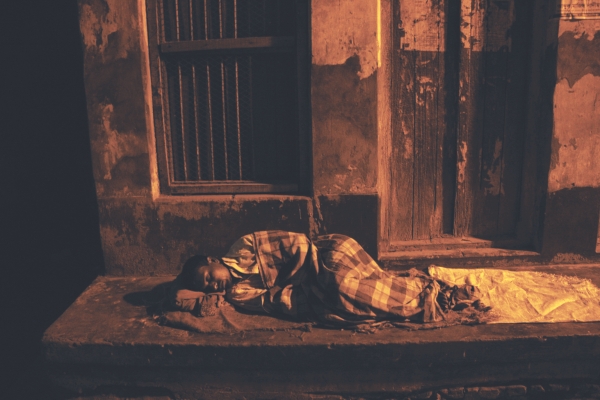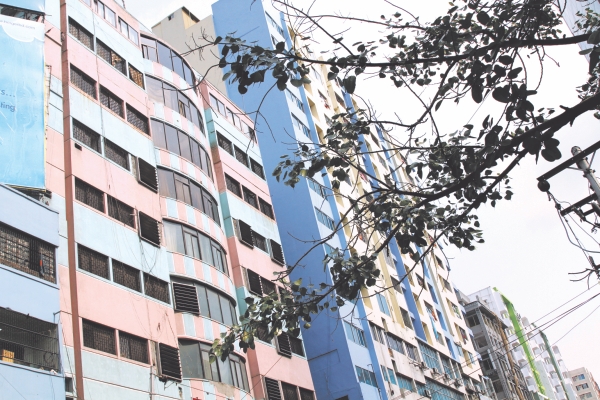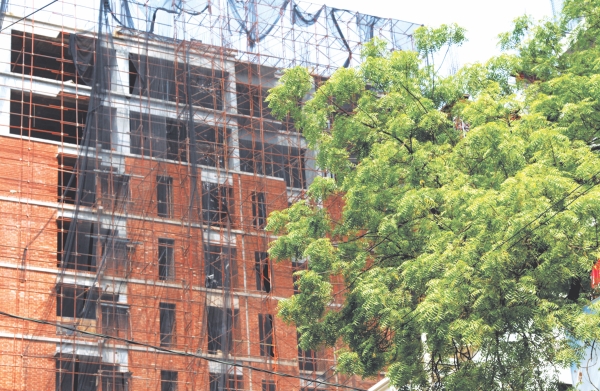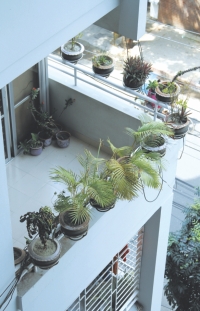| Home - Back Issues - The Team - Contact Us |
 |
| Volume 11 |Issue 24| June 15, 2012 | |
|
|
Cover Story
In the absence of a monitoring body, house rents in Dhaka are sky rocketing, placing a heavy burden on tenants. With inflation on the rise, tenants are struggling to make ends meet while at the same time acquiescing to the whims of house owners. Tamanna Khan In a city that attracts more than 2200 people everyday, it is easier for sparrows to find a home than it is for humans. While one has to pay unauthorised tolls to even spend a night under the open sky, sleeping under a proper roof in the city is becoming costlier. Unsurprisingly, owners of land or buildings in the city have an upper hand over their tenants. In fact, it is difficult to find any 'To-Let' signs hanging on a building for too long. While searching for a place to live in, Dr Farhana Ahmed, a rights activist, working in an international network, had come across flats in Dhanmondi, owners of which demanded rent as high as Tk 1 lakh. In a country where 32 percent of the population lives below the poverty line, Farhana found this amount quite absurd. But to her surprise within a week the To-Let sign was gone; the place had already been rented.
The amount of rent that people are being forced to pay is not the main concern. Rather, it is the chunk it takes out of the total household income that is so worrisome. Monira, a boutique entrepreneur, recently had to move to a new flat in Modhubazar from her previous flat in Dhanmondi. “I left it because the house rent was so high, I could no longer afford it,” she says. With both husband and wife earning about Tk 75,000 per month, the Tk 40,000 rent of the previous flat was way too much for the couple, who have two grown up children studying in high school and college. Two years ago, when Monira moved into the flat in Dhanmondi, the rent including other charges and bills was Tk 30,000, which over the years increased by another Tk 10,000. “We could have afforded that, but the cost of everything else is also going up, so we decided to move,” she says. Consequently, Monira's family left the costly neighbourhood of Dhanmondi. She was fortunate to find a bigger flat at almost half the cost of the previous one. She, however, had to sacrifice the broad Dhanmondi streets and the proximity of her home to Satmasjid Road in order to live at her new home. However, shifting to an affordable place is not an option for people like Rahima, who belongs to the 32 percent of people living under the poverty line. While wiping the mosaic floor of an flat with a current market price of approximately Tk 1 crore, she describes her own abode. “It is under the Beri-bandh pump (the slum adjacent to the embankment on the River Turag). Currently, the rent is Tk1500. It is a kaccha room, with an earthen floor, raw bamboo walls on three sides and the cement wall of a government establishment on one-side. Rain water leaks into the room through the bamboo roof,” she says. Rahima's family of five lives in the 10 by 10 foot abode with a bed as their only furniture.
Sadly, even that mere Tk 1500, for which the old woman and the young girl in Chilmari wait all month long, is now at stake. After the rent increased from Tk 1000 to Tk 1500 three months ago, Rahima has been struggling to make ends meet. Some months, if she pays the rent, she does not send money home. If she does both, she buys food on credit from the local grocery shop. “The manager, who collects rent, told me, 'your husband is paralysed and your children are not of earning age so you should leave, because you cannot pay the rent.',” she says, recounting the insult she bore when she failed to pay last month's rent. Rahima is now looking for a third house for employment; the fear of eviction haunting her day and night. Though tenants are either cutting down on other expenditures or trying hard to increase their income to meet the ever-increasing house rents, almost nobody dares to protest the tyranny of landlords. However, there is a law in the country that is supposed, to protect both tenants’ and landlords’ interests. The House Rent Control Act 1991 clearly stipulates the rules and regulations landlords and tenants are supposed to follow and what should be done in case of violation by either party.
According to the Act, a standard yearly rent will be decided by the Rent Controller, on request of the landlord or tenant, based on 15 percent of the market value of the building, which too has been decided following legal regulations. Whereas the standard rent is already mentioned in the Rent Control Ordinance 1986 (XXII of 1986), that rate should be considered as standard until the Controller changes it. The law also says that once the rent has been fixed it cannot be changed within two years. In reality, other than the area-wise standard rent rate posted on the website of Dhaka City Corporation South (DCCS), no other standard rate exists anywhere. However, an official of DCCS, preferring anonymity claims that the uploaded rate is not to determine or monitor rent; rather it is used for assessing holding tax. He stresses that anything to do with house rent is the responsibility of the Rent Controller appointed by the government, in the lower and district judge courts. “We assess the holding tax on the basis of the rent rate uploaded on the website, which we have found through a survey. We use this estimated rate as the minimum amount for assessing tax,” he says, adding that if rent deeds for higher amount are found then holding tax is charged accordingly. In the absence of the standard rate, even the 15 percent rule is impractical, argues Quazi Farooque, president of the Consumer Association of Bangladesh (CAB). His argument is justified since there is hardly any well-accepted standard way of determining the market price of a land or building. Even if it is determined, the monthly rent, for example of a 2600 square feet flat in Dhanmondi with an estimated current market price of Tk 1 crore, will be Tk 1.25 lakh, which is way out of the reach of many upper- middle class families and individuals, who live in that area. Farooque also says that the current law is inadequate as it fails to appoint a custodian who will monitor and review rent on a regular basis. He suggests that the Local Government and Rural Development ministry should take responsibility of house rent control, since they collect holding tax through the municipalities and are also responsible for other property related matters. He also emphasises on the enactment of a new law on House Rent Control that will deal with the loopholes of the existing Act.
Although according to the present law, all disputes between a landlord and a tenant can be taken to the Rent Controller in the lower court, few people ever venture to do so. One reason is the absence of a written and stamped rent agreement made between the landlord and tenant. A B Shamsuddoza, an editorial assistant of a newspaper, failed to receive a written contract from his previous landlord, despite repeated reminders. Shamsuddoza and his family were given an eviction notice within a month of moving into that flat, built by a renowned real estate company. “Since it was an flat, they sold it to another party without even notifying us,” he says, “We had given them two months' advance rent. In addition, we paid the rent for the month on which we took possession of the flat.”
Interestingly, the law clearly states that if the tenant continues to pay rent regularly and abide by the contract, then even if the premises is sold to another party, the tenant cannot be given any eviction notice. Mohammad Nuruzzaman, who dealt with the tenants on behalf of the flat owner of Shamsuddoza's previous abode, admits that he knew about this law. He insists that Shamsuddoza had agreed to leave the flat voluntarily. “It was mutually agreed upon,” he claims. In his defence, he says that Shamsuddoza had violated the contract (which was never written) by staying at the flat as a bachelor, when he rented the place saying that he would live there with his family. When asked if the law of the land prohibits renting out a place to a bachelor, he says, “The flat's association decides the rules and regulations and I do not know if the rules contradict the law.” The truth is, renting a place in the city is far more difficult for a single person than it is for a family. Dr Farhana Ahmed felt the heat of the situation when she started looking for a decent place to stay. “It is a nightmare to rent a place as a single woman,” she rues, reflecting on how she has been bombarded with unlimited and often irrelevant questions about why she needs such a big place to stay all by herself. For one flat, the landlord demanded a six months' advance which comes around to Tk 3 lakh. However the law forbids demanding advance which equals more than one month's rent unless the owner rents out the place for 20 years and opts to build or re-build the house with the advance.
Farhana's plight did not end with unrealistic demands from house owners. Like Shamsuddoza, she was also given an eviction notice without prior consultation, on grounds that the flat would be sold to another party. Ironically, the owner was a former judge and had worked in the ministry of law. Yet, the owner felt insulted when Farhana reminded him of the elaborate contract that clearly states her rights. Interestingly, it was the owner who had insisted upon signing a contract when he initially rented out the place to her almost two and a half years ago. Farhana, ultimately had to leave the flat and rent a new one giving three months' advance rent and signing a two-year contract. Yet, on the first day of the month, when she was supposed to move in, the owner's representative called her and requested her not to do so, without giving a good reason. At that point, Farhana had no choice but to move in, despite the owner's reluctance. “The place needed a lot of repairs, but nothing was done,” she says, “Basically, I stayed in a very insecure flat, feeling scared which I haven't felt for a long time.” Even when she moved in, the owner's representative asked her again to cut short her stay at the place, because they wanted to rent it out to a relative of the owner.
Though Farhana did not file any complaint with the Rent Controller, her lawyer called the flat owner's representative and asked for an explanation for this harassment. Unlike Farhana, most people just give in to owners' unreasonable demands and hardly ever seek any legal help. People's scepticism about the lengthy and cumbersome legal system of the country makes the present law even more ineffective. Many are not even aware of the provisions of the law. For Rahima, terms like agreement and rent receipt are also vague and meaningless. Shamsudozza, who once suffered as a result of the absence of a contract, moved into a new place, again without signing a formal rent agreement for similar reasons.
According to a CAB report, house rent on average rose by 15.83 percent over the last fiscal year. When the data of the last twenty years is considered it is seen that rise per year varied between 10 to 25 percent. Sadly, household income has not increased at the same rate. Mohammad Rafiqul Islam, chauffeur of a private car, has been living in a sublet room with his family of five for 14 years. He has seen the rent rise 3.3 times while his salary during the same period increased 2.6 times its original amount. For most people rent expenditure accounts for more than half to one-third of their household income. Unfortunately, there is nothing in the budget for the fiscal year 2012-13 to ease this pressure. Rather middle-income earners will be counting more tax money as the minimum tax rate has been increased while keeping the taxable income limit still at Tk 180,000. Thus people like Shamsudozza's will be counting an extra Tk 1000 in paying tax, with no significant rise in income. Monira Ahmed, belonging to the upper middle class and currently paying the rent for a garage space in her new flat, may have to discard her plan to buy a car. On the other hand, the budget will not have any direct effect on Rahima's life unless the price of edible oil goes down at retail level. Expert opinions are sceptical about the current fiscal year's budget's power to check inflation. Thus another rent hike is not unlikely. Quazi Farooque opines that the only way the scenario can change is through government intervention. Mobile courts can make random visits to different areas to monitor the rent charged and ensure that illegal or unreasonable terms and conditions are not imposed on the tenants. In a city of approximately 15 million people of whom 70 percent live in a rented place, such measures have become an absolute necessity.
|
||||||
Copyright
(R) thedailystar.net 2012 |
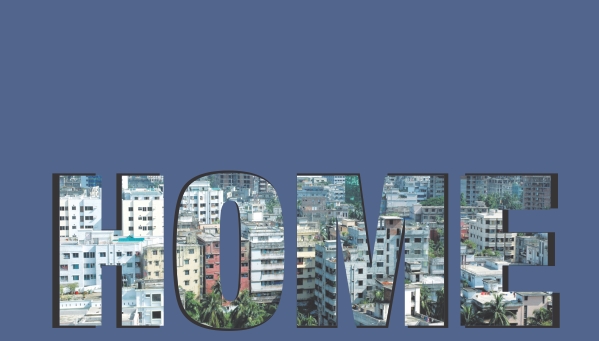
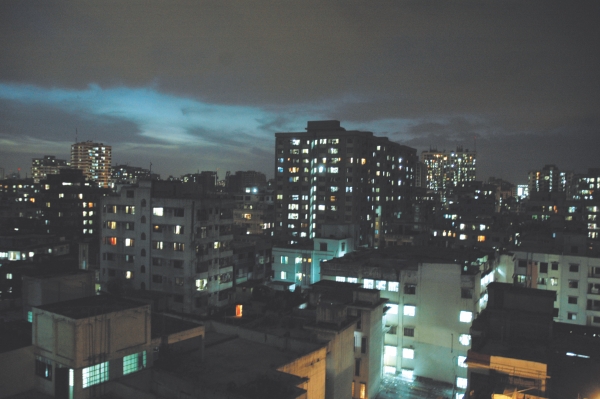
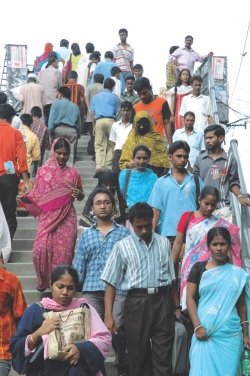 Rahima earns Tk 2,500 per month from working as part-time house-help in two houses. Her physically challenged husband sometimes contributes another Tk 1000 (approx) by selling tea, biscuits and cigarettes, only when Rahima can manage to carry and place him in front of a hospital, on her way to work. Although her three children living with them, aged six, twelve and eighteen respectively, receive no education due to their financial hardship, Rahima still has to send Tk 1500 to her mother and younger daughter in her village home, every month. It is ironic how the living expense of two individuals in Chilmari, Kurigram equals the rent of a dilapidated abode in the city of Dhaka.
Rahima earns Tk 2,500 per month from working as part-time house-help in two houses. Her physically challenged husband sometimes contributes another Tk 1000 (approx) by selling tea, biscuits and cigarettes, only when Rahima can manage to carry and place him in front of a hospital, on her way to work. Although her three children living with them, aged six, twelve and eighteen respectively, receive no education due to their financial hardship, Rahima still has to send Tk 1500 to her mother and younger daughter in her village home, every month. It is ironic how the living expense of two individuals in Chilmari, Kurigram equals the rent of a dilapidated abode in the city of Dhaka.